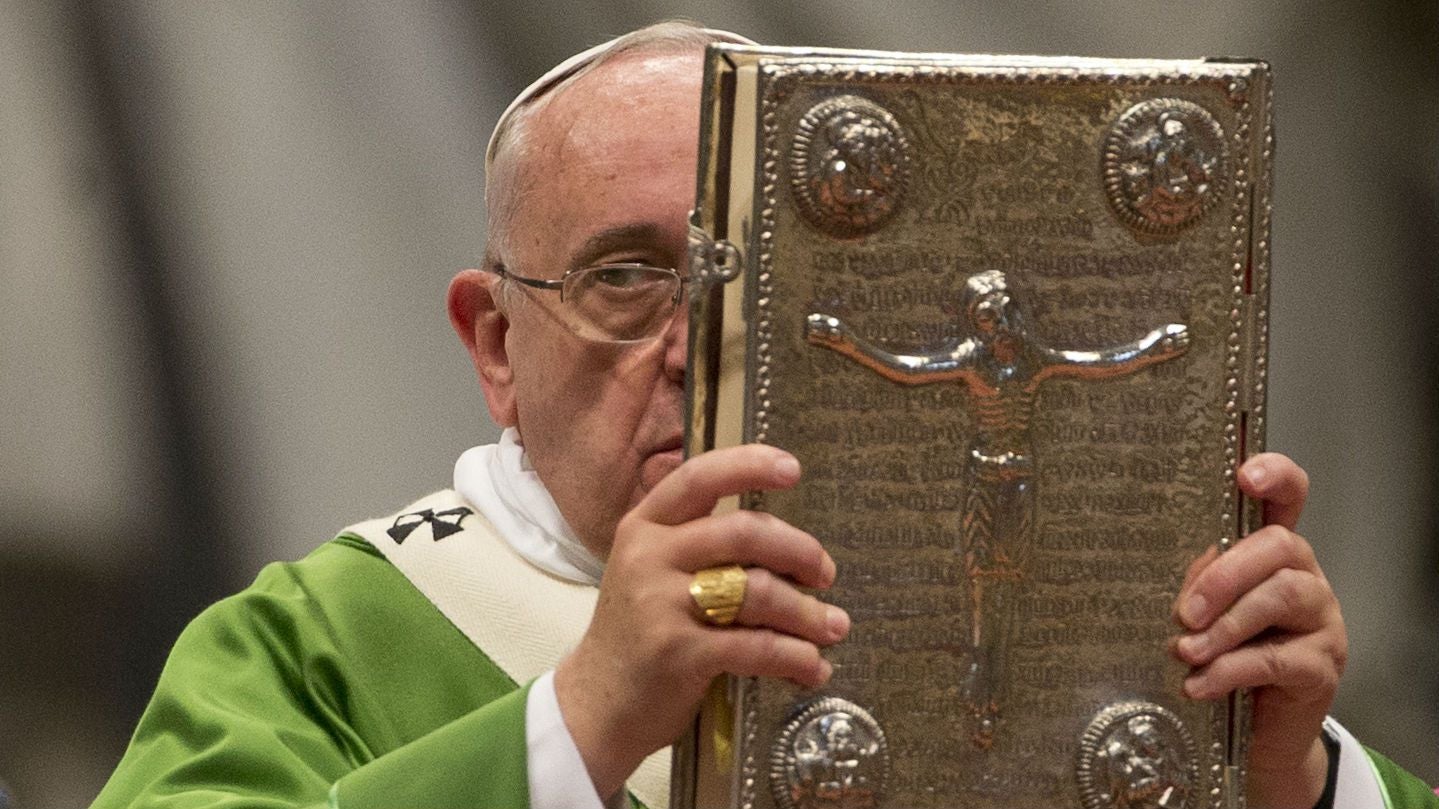Even the pope admitted it: Sometimes, separation is inevitable
Divorce and separation have long been an issue for the Roman Catholic church, which officially forbids both; it considers marriage a sacrament and therefore unbreakable. ”What God has joined, men must not divide,” pronounces the officiant at the end of a Catholic wedding.


Divorce and separation have long been an issue for the Roman Catholic church, which officially forbids both; it considers marriage a sacrament and therefore unbreakable. ”What God has joined, men must not divide,” pronounces the officiant at the end of a Catholic wedding.
In this context, the words spoken on June 24 by Pope Francis—who keeps pushing the boundaries of what is admissible for the Catholic Church—show a clear and unprecedented opening. Talking about marital separation, the pope noted (link in Italian) that there are cases in which it is “inevitable.”
Sometimes it can even become morally necessary, when it is a case of sparing the weaker spouse or young children the more serious wounds caused by abuse and violence, by humiliation and exploitation, by non-involvement and indifference.
Divorce has only been legalized recently in several majority-Catholic countries—notably Italy in 1970 (and again in 1974 after a temporary repeal of the 1970 action), Ireland in 1996, Chile in 2004, and Malta in 2011. It is still forbidden in the Philippines and of course the Vatican, which has held fast to its rejection of divorce, maintaining it is a serious sin, despite its rising rate among Catholics.
Throughout history, this position has been no small matter for the Catholic church. In 1525, it caused a schism; Henry VIII of England started the English reformation following a papal refusal to grant him an annulment from Catherine of Aragon, to allow him to marry Anne Boleyn.
Under the current doctrine, most divorced Catholics, and all of the remarried divorcees, are banned from Communion. The issue of divorce had been discussed at the holy synod of 2014, but the bishops and cardinals failed to reach consensus on whether divorced Catholics would be allowed to partake in all sacraments (link in Italian).
The pope acknowledged that there are frequent cases of “irregular situations” for couples—though, he adds, he does not like the label—and says it’s the church’s duty to try and help these families, with particular focus on any children affected.